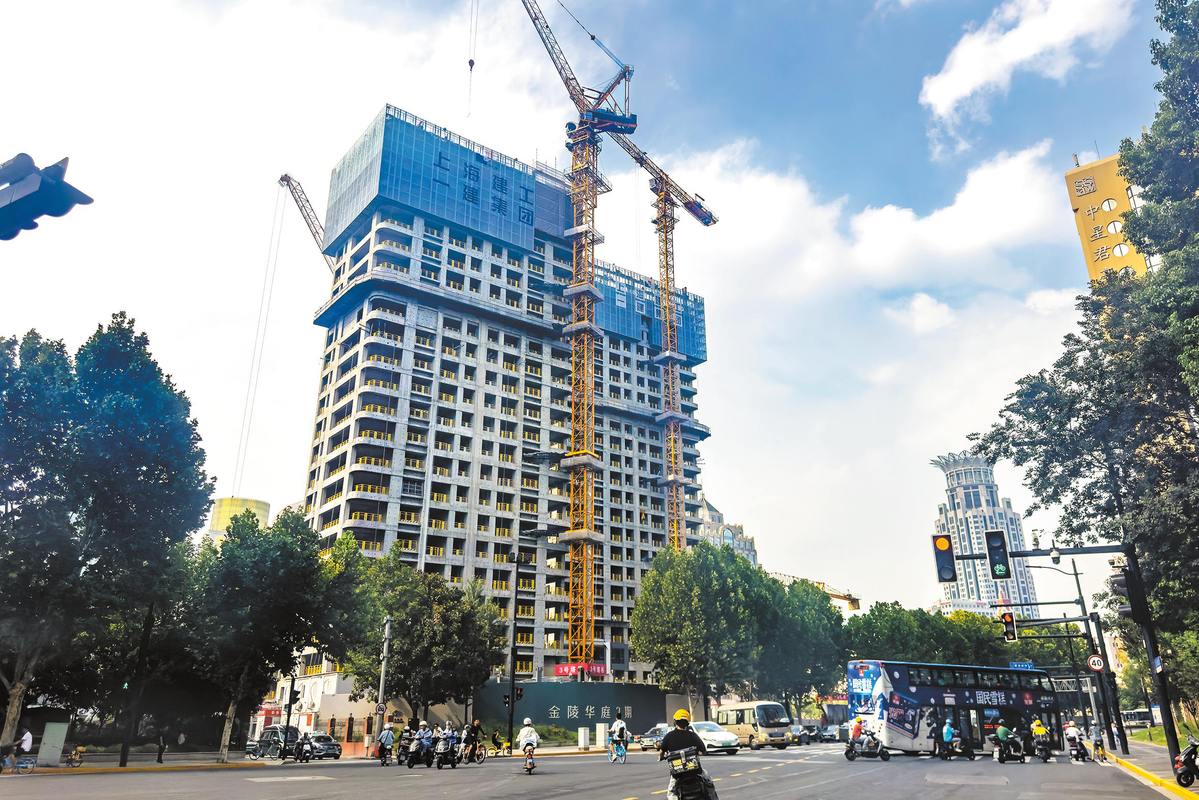Shanghai eases homebuying rules


Shanghai on Monday eased homebuying restrictions beyond its Outer Ring Road, a move experts said will bolster the housing market ahead of the traditional peak season.
To better meet homebuyers' essential and diversified housing needs while promoting stable, healthy development of the real estate market, Shanghai introduced new property policy adjustments on Monday.
The measures were jointly announced by six key municipal departments of Shanghai.
Under the new policy, all local families — and nonlocals who have paid taxes or social insurance in Shanghai for at least one year — are now permitted to buy any number of homes beyond the Outer Ring Road.
The measures also include easing purchase restrictions, optimizing housing provident fund and credit policies, and adjusting property tax rules.
"The policy adjustment is expected to benefit a wide range of homebuyers, particularly eligible single individuals," said Yan Yuejin, research director at the E-House China R&D Institute, adding that the move will work alongside other recent national policies to help improve market conditions.
Yan noted that the move is expected to help reduce housing inventory in these areas and stimulate increased homebuying volumes in the coming months.
"Shanghai's latest property policy has been robust and well-received, demonstrating the city's active efforts to stabilize the real estate market and support broader economic growth," Yan said.
"The move, which broadly eases purchasing restrictions — particularly for single buyers and in areas beyond the Outer Ring Road — is expected to have a positive impact locally while also contributing to nationwide momentum in property market recovery," Yan added.
Shanghai's property policy shift aligns with market expectations following similar easing measures in Beijing earlier in August, said Lu Wenxi, an analyst at Centaline Shanghai.
Lu said the comprehensive adjustments — spanning the provident fund, credit and taxes — will benefit homebuyers across multiple dimensions. The measures are anticipated to unlock pent-up housing demand and solidify the foundation for stable, positive growth in the city's real estate market.
Lu also highlighted that the policy's timing, which is ahead of the traditional September-October sales peak, will help strengthen market momentum.
He added that the easing measures align with both market expectations and the central government's call for market stabilization.
"The adjustments aim to balance Shanghai's segmented housing market, particularly by providing support to the under-pressure secondary segment while maintaining stability in the new-home sector," Lu added.
Like Shanghai, other local governments have also introduced a series of policies to stabilize the property market and support steady economic growth this year.
Yan stated that these policies are expected to collectively stimulate market activity and support inventory reduction.




































